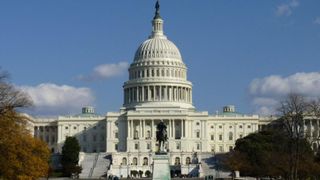House Dems Seeks DOJ Documents on White House Communications About AT&T-Time Warner Deal

Rep. Elijah Cummings is concerned that President Trump may have influenced the Justice Department to sue to block the AT&T-Time Warner merger and has teamed with a fellow House Democrat to ask the Republicans in power to compel Justice to produce documents relevant to its White House interactions.
Related: DOJ Suing to Block AT&T-Time Warner Deal
Cummings, ranking member of the House Oversight Committee, has teamed with Gerry Connolly (D-Va.), ranking member of the Government Operations Subcommittee, to ask Oversight Committee chair Trey Gowdy (R-S.C.) to subpoena DOJ, triggered by a number of actions.
Per a March 1 letter obtained by Multichannel News, those actions include then-candidate Trump's statement about the proppsed deal on Oct. 22, 2016: “AT&T is buying Time Warner, and thus CNN, a deal we will not approve in my administration.”
Cummings also cited Attorney General Jeff Sessions's refusal to answer questions about whether he had discussed the merger with the White House. Sessions deferred, saying, “I am not able to comment on conversations or communications that Department of Justice top people have with top people at the White House.”
Cummings and Connolly first asked for the documents in a Feb. 8 letter, but said they got no response from Gowdy.
"Our concern relates not only to President Trump’s well-known animus against CNN — Time Warner’s news organization — but also to Attorney General Jeff Sessions’ refusal to answer questions from Congress regarding his communications with the White House about this matter,” they wrote in the March 1 follow up letter seeking the subpoena. “Although we take no position on the legality of this transaction or the merits of the lawsuit itself, we believe our committee has a Constitutional obligation to investigate allegations of inappropriate political interference with Justice Department decision-making.”
Gowdy is unlikely to issue such a subpoena, a point the legislators appeared to recognize. They asked that if Gowdy did not issue the subpoena, that he at least put the matter on the agenda for the next business meeting of the committee so that members will be able to vote on a motion to subpoena.
AT&T also tried to get access to communications between the White House and DOJ as it prepared its case, but was rebuffed by presiding judge Richard Leon.
AT&T chair and CEO Randall Stephenson had said he did not think that the deal's issues at DOJ stemmed from presidential interference, but in a press conference announcing AT&T's decision to fight the suit, he also said that given the abrupt shift in antitrust approach by Justice, he didn't know whether that was the case or not.
Some Democrats who are no fans of consolidation and might have been more upbeat about the prospect of divestiture have signaled they think that Justice is challenging the deal because of the president's view that media outlets are out to delegitimize his presidency through fake news, a charge he has arguably leveled most often, and most vigorously, against Time Warner-owned CNN.
Broadcasting & Cable Newsletter
The smarter way to stay on top of broadcasting and cable industry. Sign up below
Contributing editor John Eggerton has been an editor and/or writer on media regulation, legislation and policy for over four decades, including covering the FCC, FTC, Congress, the major media trade associations, and the federal courts. In addition to Multichannel News and Broadcasting + Cable, his work has appeared in Radio World, TV Technology, TV Fax, This Week in Consumer Electronics, Variety and the Encyclopedia Britannica.

